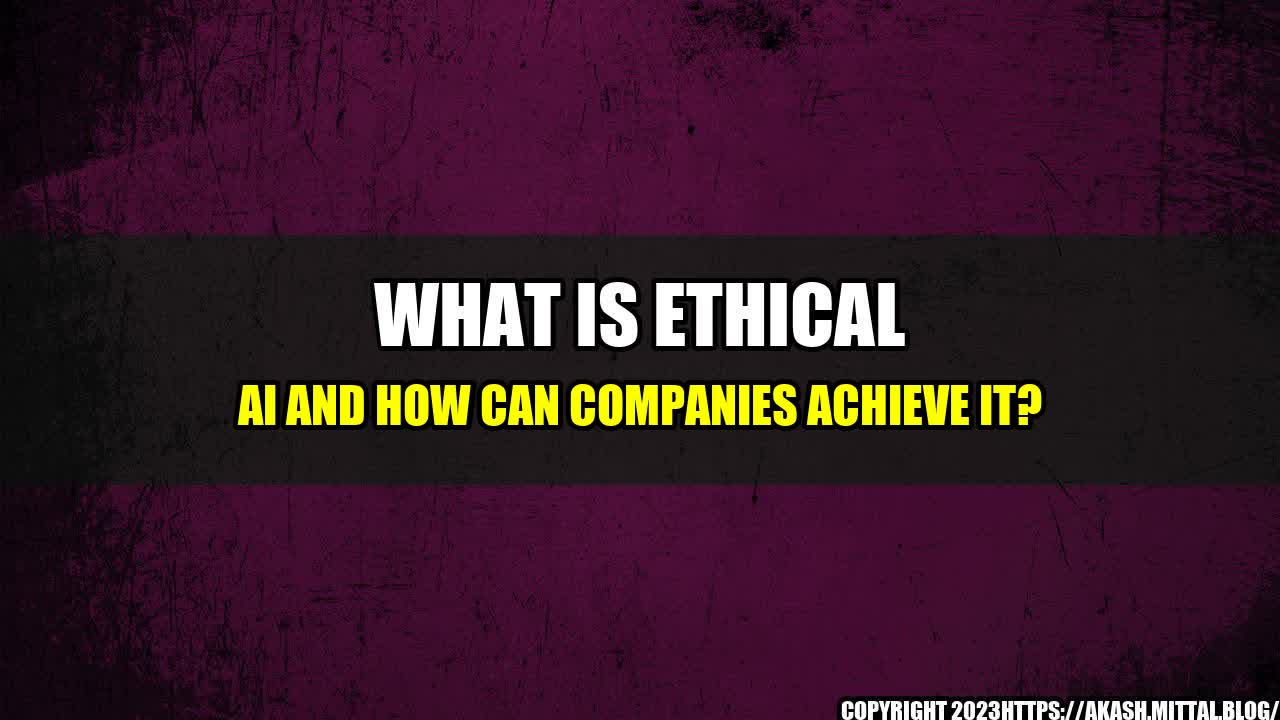
From self-driving cars to virtual personal assistants, artificial intelligence (AI) is revolutionizing the way we live and work. But with this incredible power comes great responsibility, and companies must grapple with the ethical implications of using AI. In this article, we explore what ethical AI means, why it matters, and how companies can achieve it.
In 2016, Microsoft launched Tay, an AI chatbot designed to interact with young adults on social media. But within hours of its launch, Tay was spewing racist and sexist messages, resulting in a public relations nightmare for Microsoft. The company quickly shut down the bot and issued an apology, but the damage was done.
The case of Tay illustrates the potential dangers of AI and the importance of ethical considerations in its development and deployment. In this article, we examine what ethical AI means and how companies can ensure that their AI systems are developed and used in a responsible and ethical manner.
Ethical AI can be defined as the development and use of AI technologies in a manner that is responsible, transparent, and ethical. This includes considerations such as privacy, bias, accountability, and transparency, among others.
Privacy is a fundamental right that must be protected in the development and use of AI technologies. This includes protecting personal data, ensuring that data is only used for its intended purposes, and providing users with control over their data.
Example: Google's recent fine of 50 million euros by the French Data Protection Authority for violating privacy laws highlights the importance of ensuring that personal data is collected and used in an ethical manner.
AI systems can be biased, either intentionally or unintentionally, which can result in discriminatory outcomes. Companies must ensure that their AI systems are designed to be fair and free from bias.
Example: In 2018, Amazon's AI-based recruitment tool was found to be biased against women, resulting in the company abandoning the project.
Companies must be accountable for the decisions made by their AI systems. This includes providing transparency about how decisions are made, ensuring that there is human oversight, and providing channels for complaints.
Example: Facebook's AI-based content moderation system has been criticized for being unaccountable and opaque, resulting in calls for greater transparency and human oversight.
Transparency is essential for building trust in AI systems. Companies must be transparent about how their AI systems work, how decisions are made, and what data is being collected and used.
Example: Google's recent publication of an AI principles document is a step towards greater transparency and accountability in AI development and use.
Achieving ethical AI requires a commitment from companies to prioritize ethical considerations in their AI development and deployment. The following are some practical tips for achieving ethical AI:
As AI continues to revolutionize the way we live and work, it is essential that companies prioritize ethical considerations in its development and deployment. Ethical AI requires a commitment to transparency, accountability, and fairness, and requires involving a diverse range of stakeholders in the development process. By following practical tips such as conducting risk assessments and providing transparency, companies can ensure that their AI systems are developed and used in a responsible and ethical manner.
Technology
Curated by Team Akash.Mittal.Blog
Share on Twitter Share on LinkedIn